First and foremost, we want to thank our contributors for the work that they put into making this anthology a reality. Working with them has been an immensely rewarding experience, one that has challenged us and transformed our thinking. We also want to thank LeAnn Fields for the support that she has shown for this project from beginning to end. We are grateful to her for her general advice and for her numerous insightful suggestions. LeAnn is an amazingly positive force in our profession, and working with her is a genuine privilege. Special thanks also go to Rebecca Mostov and the rest of the staff at University of Michigan Press for navigating this book through the production process. The preparation of this book would have been impossible without the help of Taylor Ball who worked long into numerous nights helping us complete the last round of editing. One could not ask for a better editorial assistant.
Several of the fundamental ideas John brought to our editorial discussions were first developed in conversation with colleagues in the University of California system. These conversations continue now under the aegis of the Multicampus Research Group in International Performance and Culture. We hope this anthology will provide a useful contribution to the group's research.
Finally, James would like to thank his family, Friederike Eigler, Lukas Eigler-Harding, and Daniel Eigler-Harding, for giving him the time, space and support to complete this project.
Introduction
James M. Harding and John Rouse
The attempt to say what avant-garde criticism is not, but ought to be, tends to show indirectly (indeed, ad absurdum) what avant-garde art is in the minds of certain individuals or groups.
Renato Poggioli, Theory of the Avant-Garde
Theory, Avant-Garde Gestures, and Performance
For well over two decades, studies of the theatrical avant-garde have hovered amid a repetition of theoretical tropes drawn loosely from the influential arguments of scholars like Renato Poggioli, Matei Calinescu, and Peter Brgerscholars whose theorizing of the avant-garde has overlooked performance as a pivotal category for defining the avant-garde itself. This project began as a response to this antiperformative bias in the theorizing of the avant-garde. It questions whether our understanding of avant-garde performance is compromised by being filtered through theories that fail to recognize, let alone conceptualize, the avant-garde gesture as first and foremost a performative act. Ultimately, however, this anthology pushes well beyond the simple conclusion that understanding avant-garde performance necessitates understanding the avant-garde as performative. The theoretical paradigms that emerge in this collection have much broader implications. They strike at the heart of avant-garde studies across the disciplines and are of relevance to all scholars of the avant-garde because they recognize the vital role that performance has to play in the theoretical definition of the avant-garde more generally.
In this regard, the very title of the anthology, Not the Other Avant-Garde, vies against the notion of a separate theory of avant-garde performance. It proposes a rethinking of the avant-garde that gives central prominence to the innovative and radical performative practices of experimental artists. At the same time, this title suggests new culturaldirections and invites a consideration of the work of experimental artists from around the globe. Playing upon the notion of the Other, it suggests that we reconsider the cultural boundaries that have historically demarcated scholarly conceptions of the avant-garde, for in doing so we can lay the foundation for a substantially retheorized notion of the avant-garde.
This retheorizing is the product of a conscious editorial strategy that draws critically upon recent trends in performance studies, and nowhere is our debt to performance studies more evident than in how we as editors conceptualized the opportunity presented by a performance-based approach to the avant-garde. We assumed that focusing on the performative foundations of avant-garde gestures could precipitate a retheorizing of the avant-garde in large part because that focus could move avant-garde studies in a direction that, in many respects, already serves as a point of departure for performance studiesin a direction, that is, that embraces a broad cultural understanding of performance and that recognizes the relevance to the conceptual paradigms that shape the avant-garde itself. The assumption here is that a culturally diverse understanding of performance can ultimately shift away from the Eurocentrism that has dominated avant-garde studies almost since its inception. Our aim is to move from a Eurocentric to a transnational conception of the avant-gardeone which recognizes that the sites of artistic innovation associated with the avant-garde tend to be sites of unacknowledged cultural hybridity and negotiation. We grounded our anthology in this recognition, hoping that its culturally diverse notions of performance will initiate a larger rethinking of the avant-garde than we have been able to accomplish within the limited scope of this single anthology.
We realize that a focus on performance in studies of the avant-garde is its own provocation, and that, as with any scholarship that takes aim at long-established theoretical and cultural paradigms, this anthology will likely encounter a measure of resistance. But if this extension proves to be controversial, we welcome the ensuing debate because it may generate a critical discussion about the avant-garde that is long overdue. Indeed, if there are those who suggest that conceptualizing the avant-garde (as this anthology does) along transnational lines is a vexed enterprise, we would note that the term avant-garde has always been vexed. This very point, in fact, is the central thesis of Paul Mann's important Theory-Death of the Avant-Garde. To be sure, Mann neither looks to performance nor beyond a Eurocentric frame. But he does conceptualize the avant-garde within a dynamic, evident at both practical and theoreticallevels, of constantly evolving resistance and contestationa dynamic that lends itself well to the course of inquiry this anthology pursues.


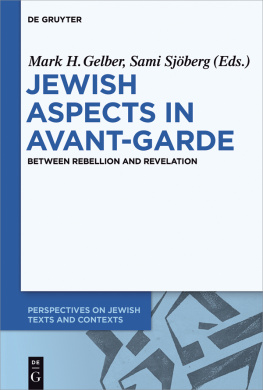
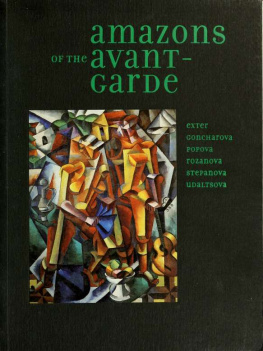
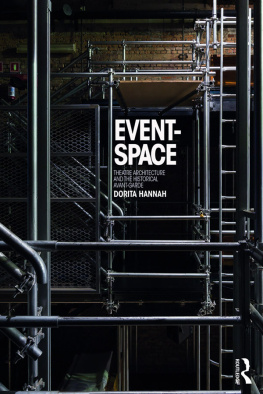



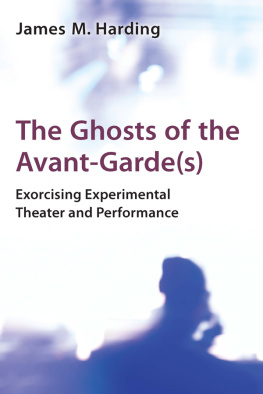
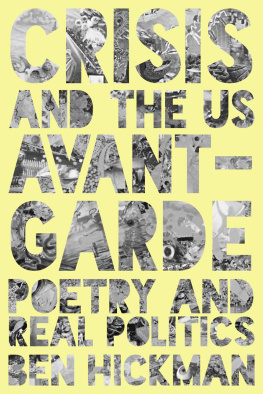
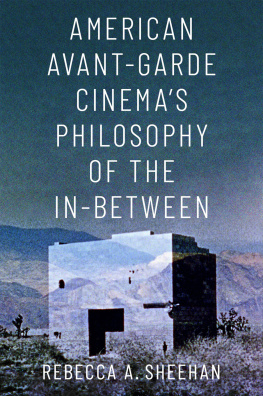



 Printed on acid-free paper
Printed on acid-free paper